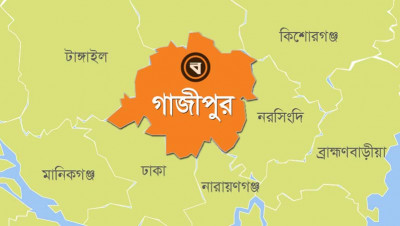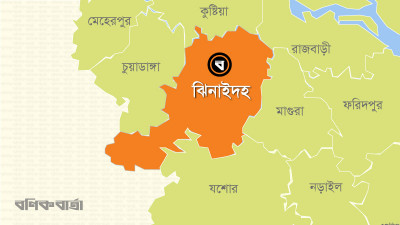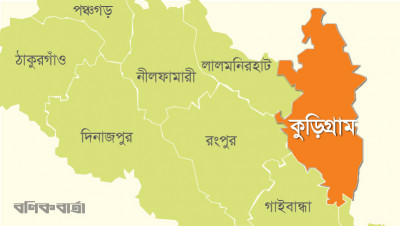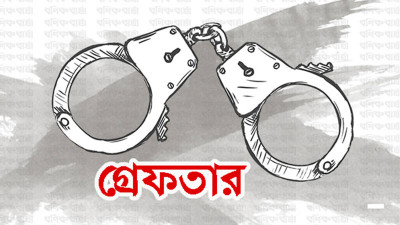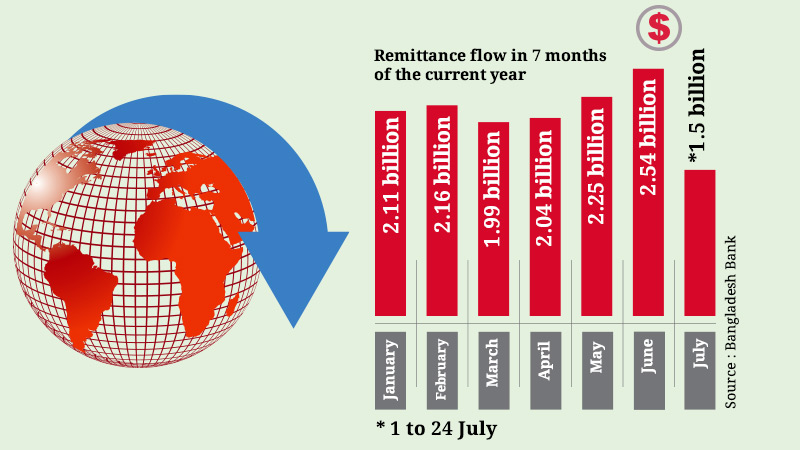 Photo : Bonik Barta
Photo : Bonik Barta The country's remittance flow had finally shown a growth trend. However, in the context of internet shutdowns and nationwide conflicts, clashes, and curfews regarding the quota reform movement, there is a risk of a decline in July. As of July 24, the country received only 1.5 billion dollars in remittances. Of this, nearly 980 million dollars came in the first 13 days. From July 14 to July 24, remittances totaled approximately 530 million dollars. In contrast, last month (June), expatriate Bangladeshis sent 2.54 billion dollars in remittances to the country.
Stakeholders say the violence, deaths, and internet shutdowns in the country have generated anger among expatriates worldwide. Some are campaigning against sending remittances through banking channels in the country. In this situation, there is a risk that remittance flow in the last week of July may decline significantly. In such a case, the remittances received in July could be the lowest of the year.
However, Md Mezbaul Haque, Executive Director and spokesperson of Bangladesh Bank (BB), believes that expatriates will not respond to the current campaign of sending remittances via informal channels. He is hopeful that expatriates will continue to send remittances through banking channels.
The central bank spokesperson told Bonik Barta that as of July 24, remittances amounting to 1.5 billion dollars had arrived in the country. However, this figure might increase slightly, as banks were closed for five consecutive days. Although banks reopened on Wednesday (July 24) and Thursday (July 25), their operations were minimal. Banks were restricted to only cash deposits and withdrawals. Even though remittances arrived in the nostro accounts, complete reconciliation has not yet occurred. Once banking operations return to normal, a full account of the remittances for the month will be available by the end of the month.
An analysis of Bangladesh Bank reveals that the lowest remittance inflow for the first six months of 2024 was in March, with 1.99 billion dollars arriving in the country. Before that, remittances amounted to 2.11 billion dollars in January and 2.16 billion dollars in February. In April, expatriate Bangladeshis sent 2.04 billion dollars in remittances; in May, the amount was 2.25 billion dollars. Most recently, in June, expatriates sent a record 2.54 billion dollars, the highest in the last 47 months. Previously, in July 2020, expatriate Bangladeshis had sent a record 2.59 billion dollars, the highest in the country's history.
The majority of remittances from the Middle East come through Islami Bank Bangladesh PLC. The bank collects more than one-fourth of the country's total remittance flow. The Managing Director (MD) of Islami Bank, Muhammad Munirul Moula, said to Bonik Barta, "After being closed for five consecutive days, limited banking activities resumed on Wednesday and Thursday. The remittances that arrived on these two days were sent during the closure. We have also heard about the campaign against sending remittances through banking channels. The impact of this campaign will become clear next week."
The chief executives of three other private banks in the country have stated that the expected amount of remittances arriving after five consecutive days of bank closures on Wednesday and Thursday was not observed. To understand the actual situation, one will have to wait until the first week of August. Expatriate workers receive their salaries either at the beginning or end of the month. If the remittance flow does not increase during this time, it will indicate that the situation is critical.
On July 16, Tuesday, violence erupted across the country centered around the quota reform movement. As of the latest reports, at least 206 people have been confirmed dead due to a week-long period of violence and clashes. In connection with these events, internet connectivity in the country was suspended from July 18 to 23. Although it has been partially restored since then, internet services have not yet fully returned to normal. To control the situation, the government has imposed curfews and deployed the army nationwide. The violence and deaths in the country have also caused a degree of agitation among expatriate Bangladeshis. In solidarity with student movements in the Middle East and several countries in Europe and America, expatriates have organized rallies and protests. Some of these rallies have even included calls for a remittance "shutdown."
According to those involved, expatriates have been unable to communicate appropriately with their families in recent days due to the internet shutdown. This has left a significant portion of them disgruntled. One such expatriate is Joydeb Karmakar, who works as a construction laborer in Saudi Arabia said to Bonik Barta, "I mostly send money through banks and bKash. Given the current situation, no one will be sending money in the next two or one month. Even if they do send money, it might just be for household expenses via bKash. Otherwise, they won't send any money. I haven't been able to contact my family for 10 days and haven't seen my children. The internet has been shut down. There is a sense of frustration among people. There was no need to cut off all communication by shutting down the internet. We are living in fear abroad."
He further added, "If someone's father or brother has died or if someone is ill, we haven't been able to get any information about them. This is why expatriates are particularly upset. There is a chance that many won't send money to the bank for the next one or two months."
Bangladeshi expatriates in various countries in Europe and America are expressing similar concerns. Like Saudi expatriate Joydeb Karmakar, Bangladeshi lawyer Munawar Hossain, who lives in France, has expressed a similar view. He said, "Bangladeshis in France and across Europe have held protest marches and rallies. In Europe, there is absolute freedom for any kind of March, rally, and expression of opinion. Expatriates in France have currently decided not to send remittances directly to the country. Many have said that they will send money through other means in cases of emergency. This is in protest of the shooting at students."
A significant portion of remittances in the country comes through agent banking or MFS services, among which bKash is a prominent service. From inquiries with bKash agents in various districts, it has been learned that due to the internet shutdown, no remittances could be sent using this service from July 18 to 24.
Firoz Alam Russell, the owner of Maya Telecom adjacent to the Girls' School in Lakshmipur municipal town, said to Bonik Barta, "Due to the internet shutdown over the past week, no transactions occurred from expatriates. Transactions have now resumed. He mentioned that, on average, about BDT 4 million is transacted through bKash every month. This month, the amount has dropped to half. Where transactions used to be BDT 200 thousand, it has now fallen below that amount."
Additionally, the recent sentencing of 57 Bangladeshis to various prison terms in the United Arab Emirates (UAE) is also feared to have a negative impact on remittances. According to relevant sources, after this incident, those who protested in the Middle East and other Gulf countries are experiencing anxiety about being detained. Some even feel apprehensive about going to work. Expatriates in these countries report that, besides the UAE, protests and human chain demonstrations have been held in various sizes in Riyadh, Saudi Arabia; Doha, Qatar; Beirut, Lebanon; and Salalah, Oman.
On July 19, it was reported that a few individuals were detained in several countries, including the UAE, for participating in rallies supporting Bangladesh's quota reform movement. However, the veracity of these reports could not be immediately verified.
Rezaul Rony (a pseudonym), a Bangladeshi construction worker residing in Riyadh, said, "All forms of marches and rallies are banned here. Yet, whenever something happens, people take to the streets with protests. There have been rallies in support of the quota reform movement in Bangladesh. However, following the UAE's imprisonment of expatriates, there is now a sense of apprehension about detention among expatriates in Riyadh."
In Beirut, Lebanon, on July 21, some Bangladeshis living there organized prayer meetings and human chain demonstrations in support of the students involved in the quota reform movement. In the context of the UAE incident, these activities did not turn into large-scale events. Nonetheless, there is concern among expatriates about whether the local government will take any harsh measures against such demonstrations.
In Qatar, expatriates have also held rallies and protests supporting the quota reform movement. However, it is not known if anyone has been detained in connection with these events. There is now a sense of apprehension about detention among expatriates there as well.
In response to the incidents related to the quota reform movement, on July 19, Bangladeshi expatriates protested on various roads in the United Arab Emirates. The UAE government sentenced 57 Bangladeshis to various prison terms for their involvement in these protests. The day after, the UAE temporarily suspended visas for Bangladeshis. While the processing of worker visas has resumed, tourist visas remain suspended.
The day after this event, on July 20, the Bangladeshi Embassy in Abu Dhabi and the Bangladesh Consulate General in Dubai issued statements urging expatriates to refrain from such activities. The statements requested all Bangladeshi expatriates residing in the UAE to adhere to local laws and regulations.
On July 24, the Minister of Expatriate Welfare advised expatriate Bangladeshis to comply with local laws. He warned, "By protesting, they have damaged Bangladesh's image abroad. Bangladesh will not interfere in matters concerning the sentenced expatriates. It is a domestic issue of that country."
While the country's primary source of foreign currency earnings is the export sector, remittances play the most significant role. According to Bangladesh Bank, in the 11 months of the fiscal year 2023-24 (July-May), the country's export earnings amounted to 37.34 billion dollars. During the same period, expatriates sent 21.37 billion dollars in remittances to the country.
Economists say that against the 37 billion dollars in export earnings, at least 30 billion dollars worth of goods had to be imported. In this case, the country's actual foreign currency earnings amount to only 6-7 billion dollars. However, there is no corresponding expenditure for the money sent by expatriates as remittances. All the money sent by expatriates helps cover the country's foreign currency expenditures and contributes to increasing the reserves.
Dr Salehuddin Ahmed, a former governor of Bangladesh Bank, believes that "The country's economy is already under severe pressure. For the past three years, there has been a significant shortage of dollars. In this situation, remittances have kept the Bangladeshi economy afloat. Due to the dollar shortage and the misalignment of exchange rates, a large market for informal remittance channels has emerged. If expatriates start prioritizing informal channels like hundi over legitimate ones, the economic crisis will reach even more severe levels. The existing high inflation in the country will also be exacerbated."



